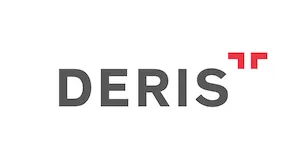IAR CASE SUMMARY TEMPLATE
| Jurisdiction: | Turkey |
| Subject Heading: | I.D.1. Similarity of Marks |
| Case Name and Citation: | UNILEVER N.V. vs YILDIZ HOLDING ANONIM SIRKETI, Case No. 2009/76; Decision No.2010/47 (Beyoglu Court of Intellectual and Industrial Rights, September 23, 2010) |
| Plaintiff: | UNILEVER N.V. |
| Defendant: | YILDIZ HOLDING ANONIM SIRKETI |
| Marks Associated with Goods/Services: | Plaintiff's MAX trademarks especially registered in classes 29 and 30 and defendant's MAXIO trademark no.2007 14791 registered in classes 29,30 and 32. |
| Nature of Case: | Cancellation action based on likelihood of confusion due to similarity of marks, on notoriety of plaintiff's trademark and on bad faith of the defendant. |
| Prior Decisions: | |
| Overview of Decision and Ruling: | The plaintiff claimed that; MAX is a well-known trademark by supporting such claim with related documents/information, that MAXIO is confusingly similar to their worldwide known MAX trademark in their overall in respect of visual and phonetic aspects due to its creation by addition of two letters to plaintiff’s well-known MAX trademark, that specifications of the trademarks are overlapping/directly connected and both of the trademarks are being used for daily consumption products where consumers mostly consist of children and young people with lower information and attention level who do not pay high attention and do not spend much time during buying this products; that the defendant has acted in bad faith with the aim of taking unfair advantage from the reputation of plaintiff’s trademarks by choosing such similar trademark. And requested from the Court the cancellation of defendant’s trademark registration for MAXIO. The defendant claimed that; MAXIO can not be considered as confusingly similar to plaintiff’s MAX trademark due to the sufficiency of the additional letters in their trademarks for differentiation of the trademarks from each other, that use of MAX referring to MAXIMUM should not be monopolized and that MAX does not have a distinctive character and therefore should be registered as a trademark at all. And requested from the Court the rejection of the court action. In the light of the evidences submitted by the parties and of the expert report which is in plaintiff’s favor, The Court has determined that; the high level of notoriety of plaintiff’s trademark should be accepted, that the defendant has not acted as a prudent business man in accordance with Article 20/2 of Turkish Commercial Law and has the aim of taking advantage from the reputation of plaintiff’s well-known MAX trademark series; that MAX and MAXIO can be considered as confusingly similar to each other in their overall in respect of visual and phonetic aspects since the essential part of MAXIO is MAX; products on which the trademarks are used are not products where consumers pay high attention and the consumer group of both of the trademarks are firstly children and young people who’s attention level is less than average consumers and therefore use of MAXIO for goods in classes 29 and 30 would lead to confusion; furthermore goods in class 32 are also related to daily consumption; therefore use of MAXIO for these goods would also lead to confusion and to a wrong impression that MAXIO belongs to MAX trademark series. The Court has ruled to the cancellation of defendant's trademark no. 2007 14791 MAXIO and deletion of the related record from the trademark registry and prevention of the use of this trademark after the finalization of the cancellation and to charging the defendant to pay all the expenses for the litigation costs.
|
| Importance of Case: | The Court has been convinced that MAXIO trademark was not a newly created word mark and not sufficiently distinctive from MAX. This decision is important as the Court has acknowledged the high level of distinctiveness and notoriety of the trademark MAX as such and not as an abbreviation of the word “MAXIMUM”. |
| Images/Description: |  |
| Contributing Firm: | Deris Trademarks Agency |





